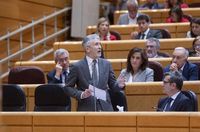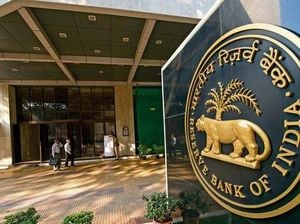On Monday night, April 28, 2025, the Consell of the Comunitat Valenciana convened an extraordinary meeting and decided to request the declaration of a national emergency due to a massive power outage that has affected Spain. This significant decision was proposed by the Minister of Emergencies and Interior, Juan Carlos Valderrama, as reported by the Generalitat.
President Carlos Mazón emphasized the need for better coordination in light of the situation affecting all autonomous communities, stating, "We must ensure the best coordination among all regions." The Emergency Coordination Center of the Generalitat (CCE) had initially established situation 1 of the Territorial Emergency Plan of the Comunitat Valenciana but escalated it to situation 2 in response to the blackout.
As the situation unfolded, Prime Minister Pedro Sánchez confirmed that eight autonomous communities, including Andalucía, Madrid, Castilla-La Mancha, Extremadura, Galicia, La Rioja, Región de Murcia, and the Comunitat Valenciana, have escalated their response to level 3 of Civil Protection. This level indicates a serious emergency requiring national coordination.
Minister of the Interior, Fernando Grande-Marlaska, has taken charge of managing the national emergency in these communities. According to the Ministry of the Interior, emergencies of national interest necessitate coordination among various public administrations, especially when they affect multiple autonomous communities and require resources at a supra-autonomous level.
The power outage, described by Red Eléctrica de España as of "exceptional and extraordinary" magnitude, has left many areas without electricity since it began at 12:30 PM on April 28, 2025. Recovery efforts have commenced, with reports indicating that between 20-25% of the electricity supply in the Valencian Community was restored by 8 PM on the same day.
In response to the ongoing crisis, several large cities and universities have opted to suspend classes on Tuesday, April 29, 2025, due to uncertainty regarding the electricity supply and public transportation. The city councils of Valencia, Alicante, and Elche have announced the suspension of classes in all educational centers, including those for Infantil, Primaria, and Secundaria.
Public transport services, including the Metro de Valencia and TRAM of Alicante, have also been affected. FGV, the operator of these services, stated that they cannot guarantee a normal start to operations on Tuesday. However, schools in Alicante will remain open without classes to ensure the safety of students.
Valencia is set to host the Congress of the European People's Party (PPE) on the same day, with around 1,700 participants expected, including Ursula Von der Leyen, the President of the European Commission. This event adds another layer of complexity to the ongoing emergency.
The declaration of a national emergency marks the first time in Spain's history that such a mechanism has been activated for crisis management at this scale. The activation of level 3 emergency status allows the Ministry of the Interior to assume full control of the response efforts, coordinating resources across various levels of government.
According to Law 17/2015, emergencies of national interest are defined as those requiring coordination among diverse administrations because they affect multiple regions. The law empowers the Minister of the Interior to direct the emergency response, which includes managing all state, regional, and local resources necessary to address the crisis.
Grande-Marlaska has been actively involved in coordinating the response, participating in meetings of the National Security Council and overseeing an extraordinary coordination committee to address the fallout from the power outage. He has stated that the government will continue to work diligently to restore normalcy as quickly as possible.
As the situation develops, the government has urged other communities that may need assistance to request the activation of national emergency status. This proactive approach aims to ensure that all necessary resources are mobilized to effectively manage the crisis.
In summary, the declaration of a national emergency in response to the widespread power outage reflects the seriousness of the situation and the government's commitment to restoring electricity and normalcy across affected regions. The coordinated efforts of various administrations will be crucial in navigating this unprecedented challenge.






